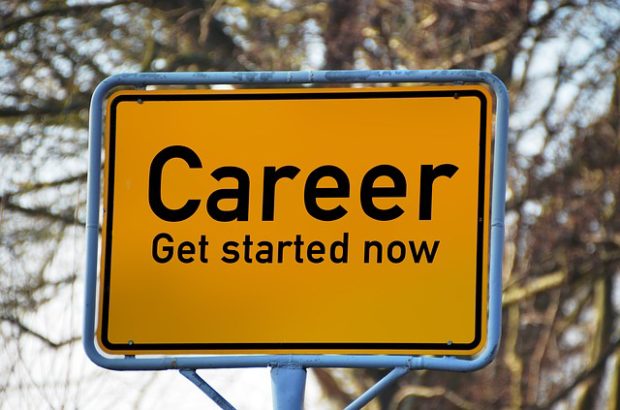Entitled to Lead: The Rise of the Millennial Female Leader
By, Alexia Vernon
In their book, Generation We: How Millennial Youth Are Taking Over America And Changing Our World Forever, Eric Greenberg and Karl Weber propose that millennials (or Generation We as they have affectionately re-branded us), the generation born between 1978-2000, is the first generation in American history to inherit a nation in social, economic, and ecological decline. Yet, they suggest we’re also the generation most optimistic about our ability to tap into our values, elicit our resources, and embrace entrepreneurship and technology to make a positive difference. 53% of us voted in the 2008 presidential election, making us 18% of the American electorate, and we’ll be the largest generational voting block in 2012.
We are the most educated generation in history, with over 60% of us enrolling in college and record numbers of us pursuing graduate degrees. We grew up in the most diverse classrooms in our nation’s history. 40% of us were Hispanic, Black, or Asian. But even if Koombiyah sounds like an appropriate theme song for our generation, are we ready to lead the world from recession to sustainable growth as we approach the next decade of the twenty-first century?
Yes and no. But mainly yes! As a member of this rising generation and a leadership development professional, I concur with Greenberg and Weber that I’m a part of a pretty awesome group. We are poised to ensure that our collective desire for change translates into results-oriented action.
While many of us millennials still need more hands on experience, relationship building, and skill development to fully realize our potential, many of us bring to our campuses, careers, and communities a nice toolbox of leadership qualities, skills, and values including articulating compelling visions, keen collaboration and negotiation skills, and a deep respect for balance, authenticity, and transparency. We might have hated our constant immersion in group projects and real-world simulations, but they taught us a lot about how to thrive in a team-oriented culture.
Some of the strongest millennial leaders are young women. We still make $.79 to a man’s dollar, compose just over 16% of Congressional members, and have a 1 in 4 chance of encountering domestic violence. But as evidenced by last Wednesday’s Women of Courage gathering which included powerhouse women from First Lady Michelle Obama and Secretary of State Hilary Clinton to Malyasian lawyer Ambiga Sreenevasan and Iraqi NGO leader Suaad Allami, international women have been rising to senior leadership positions in record numbers for some time.
Millennial women, like Women of Courage honoree 12-year old Reem al-Numery of Yemen (who could not attend the celebration for she is in court fighting her arranged marriage to her 30-year old cousin), are not only growing into strong and effective leaders, but are demanding that their voices be heard and counted today.
Millennials have often been critiqued for expecting too much too fast without putting in their dues like their Gen-X, Baby Boomer and traditionalist predecessors. However, this sense of entitlement has undoubtedly been useful to young women who believe it is both their responsibility and their right to start businesses, organize fundraisers, and bring communities together to address economic, social, and environmental inequity.
We were told that we could be the best if only we worked hard enough. While I’d argue we’d have been better served if our parents, teachers, and mentors had substituted hard for smart, our constant affirmations have definitely empowered us not only to think without the box, but also to believe we can make a positive contribution to our companies and communities.
In her book, Your Child’s Strengths: Discover Them, Develop Them, Use Them author, educator, and strengths-based leadership expert Jenifer Fox recommends that if educators, parents, employers, and other people who interface with young leaders want to empower them to peak performance, they should start with their strengths, the specific abilities that we enjoy doing and make us feel strong.
No matter how important we or someone else might tell us it is to overcome our weaknesses, strengths-based researchers from the fields of education, psychology, business, and leadership have proven that humans consistently grow the most in the area of our strengths and should be given every opportunity to play to them. American businesses currently waste a lot of talent and employee satisfaction, creating opportunities for only 12% of workers to play to their strengths most of the time, according to The Marcus Buckingham Company.
For young women looking to become more effective leaders, awaken to their authentic leadership style, and discover how to use their gifts and resources to make the maximum possible positive social impact, they can start by answering the following questions:
What is the leadership quality that my peers, parents, teachers, and/or supervisors most recognize in me? What opportunities exist and can I create to use this strength on a regular basis?
What is my preferred communication format? (e.g. face-to-face/one-on-one, small group, or in front of a large audience) How do I make sure to employ this format in my leadership so that I feel comfortable and can perform at my best?
What activities/tasks and causes/issues am I most passionate about? How can I consistently align “what I like to do” with “what matters to me”?
What are my leadership areas for growth and improvement? Who can I partner with that is strong in these areas?
What are the short and long term social, economic, and environmental impacts of the choices I make on my local, national, and international community? How can I ensure that the choices I make are always for the greater good?




